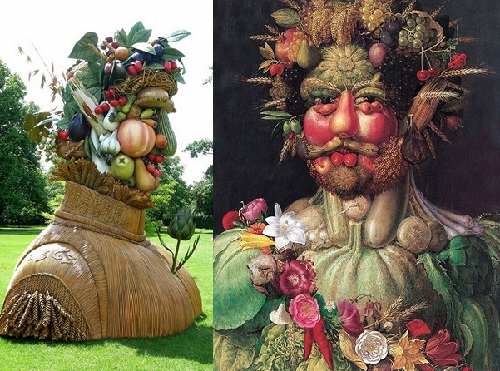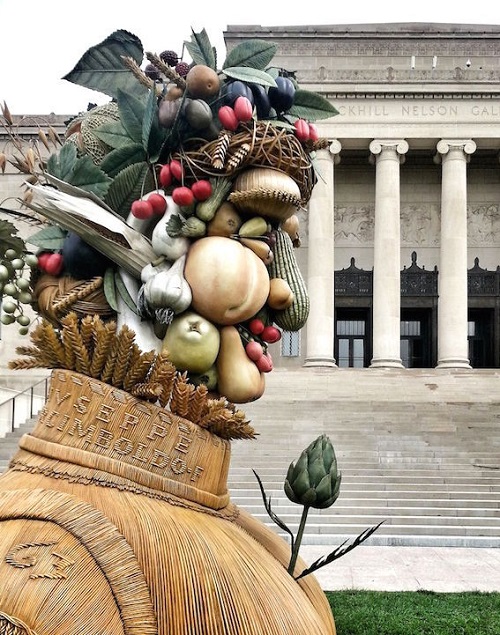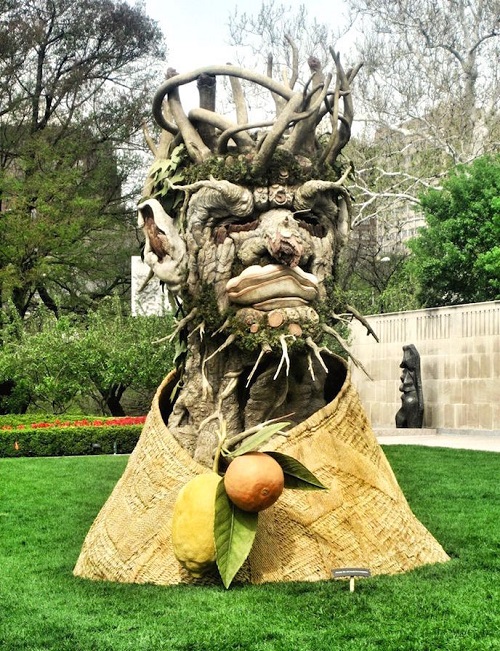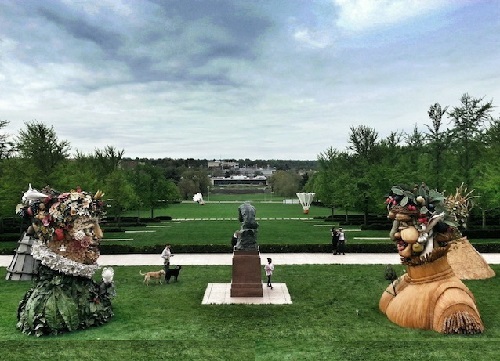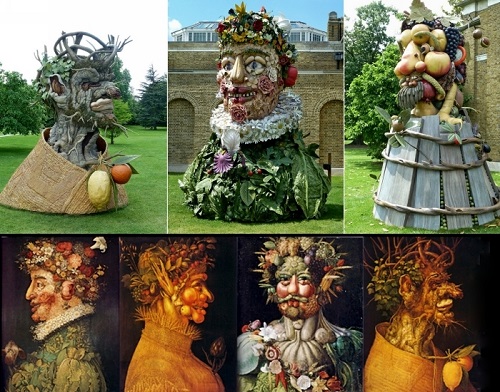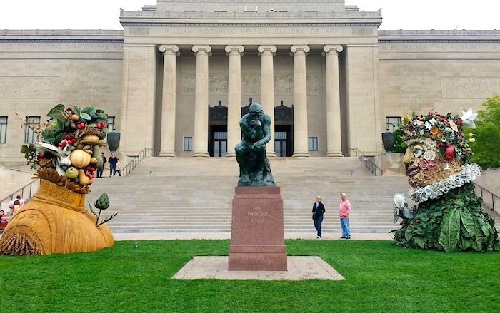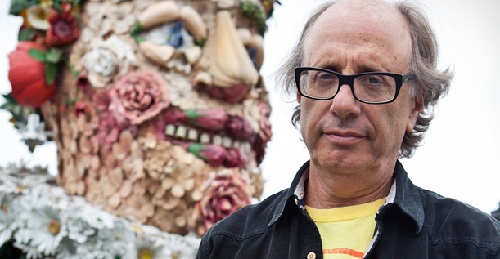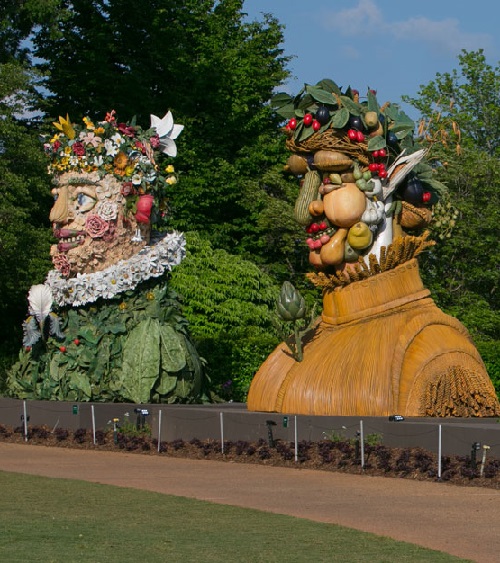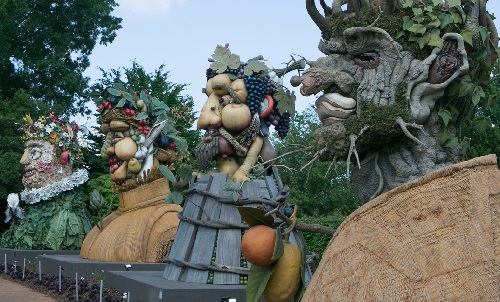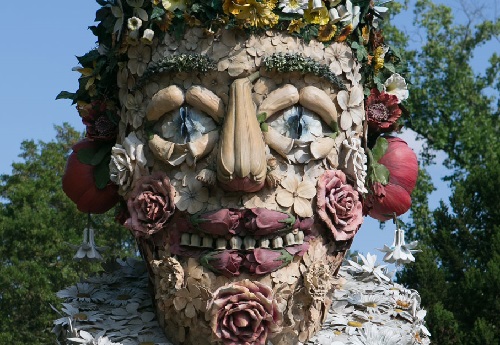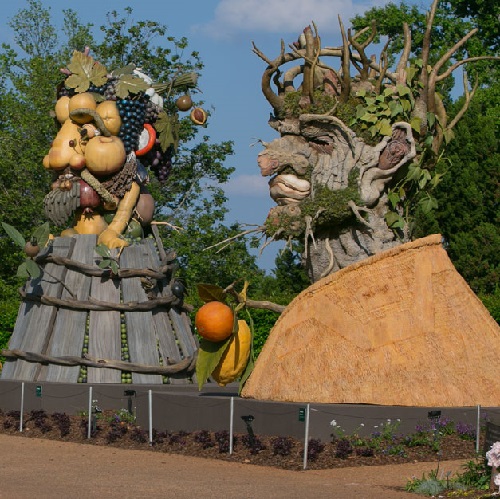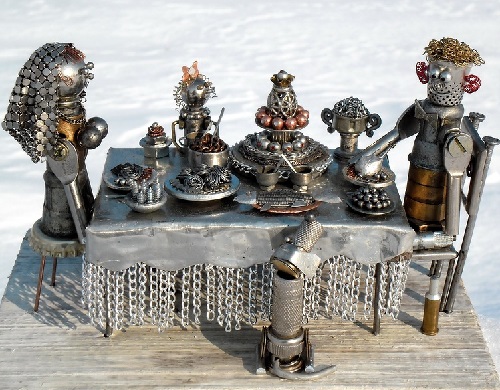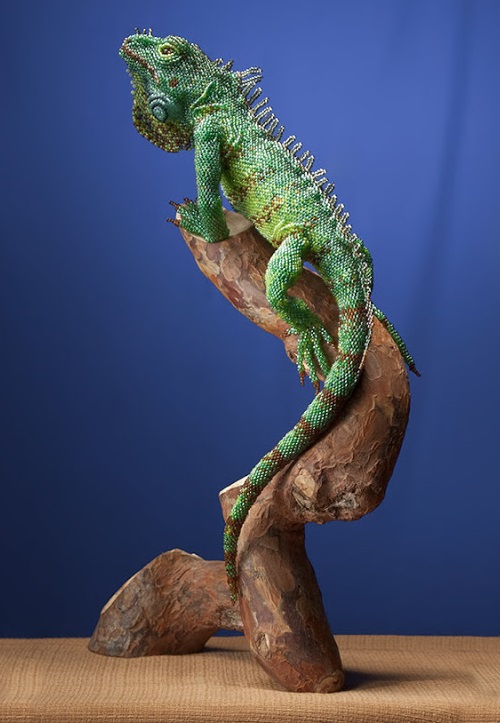Arcimboldo sculptures by Philip Haas
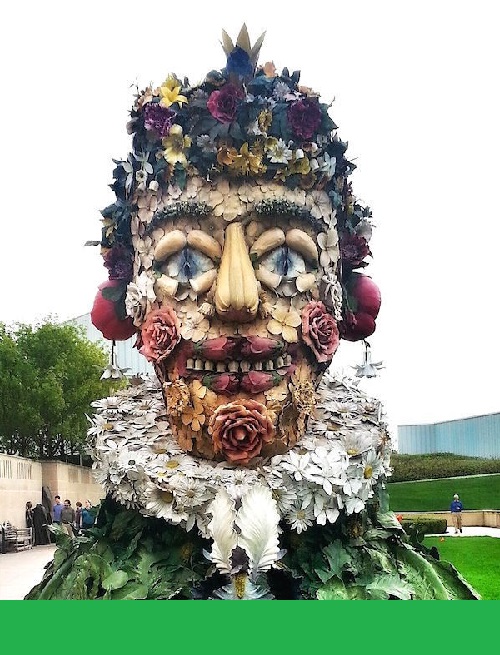
Monumental Arcimboldo sculptures by Philip Haas. Fiber-glass sculptures, inspired by Renaissance paintings of Giuseppe Arcimboldo ‘The Four Seasons’
Arcimboldo sculptures by Philip Haas
The legacy of the artist Giuseppe Arcimboldo, a representative of mannerism, the great Italian master who died at the end of the XVI century, is still alive. Perhaps, you remember a series of wonderful paintings of Arcimboldo, in which he depicted the seasons – wonderful characters made of seasonal vegetables, fruits and berries. Meanwhile, a contemporary American film director and artist Philip Haas has created the impressive installation “The Four Seasons”. The four huge sculptures, and in particular, Winter, Spring, Summer and Autumn, like monumental three-meter and three-dimensional paintings of Arcimboldo. According to sources, they appeared before the audience at London’s Museum of Fine Arts – Dulwich Picture Gallery in the summer of 2012, before embarking on a three-year tour of American museums and botanical gardens.
Aptly titled Four Seasons, the giant heads have been created from organic material that’s native to each season. For example, for Winter sculpture to depict the skin used over-sized bark. And the hair consists of gnarled tree limbs and ivy branches. Whereas the human portrait of Summer made out of bright bunches of flowers.
American artist and filmmaker Philip Haas presented solo exhibitions at the Kimbell Art Museum in Fort Worth, Texas, and London’s Dulwich Picture Gallery. Besides, in the National Gallery of Art in Washington, D.C., the Piazza del Duomo in Milan, and the Gardens of Versailles in France. Also, his paintings, sculptures, and films appeared in installations in New York Sonnabend and Francis Naumann Fine Art galleries.
In addition, Haas is the recipient of a Guggenheim Fellowship, and has taught in the visual arts and creative writing programs at Princeton University. He lives and works in New York and London.
Spectacularly transformed large-scale, fifteen-foot-high, fiber-glass sculptures of the four seasons accentuate the visual puzzle of natural forms—flowers, ivy, moss, fungi, vegetables, fruit, trees, bark, branches, twigs, and leaves. As a result, this is the work of art in its own right.
Italian painter Giuseppe Arcimboldo (1527-93), active in his native city of Milan and also in Prague, where from 1562 to 1587 he was court painter to the Holy Roman Emperors Ferdinand I and Rudolf II. He specialized in grotesque symbolical compositions of fruits, animals, landscapes, or various inanimate objects arranged into human forms. His paintings, though much imitated, were generally regarded as curiosities in poor taste until the Surrealists revived interest in such ‘visual punning’.
Arcimboldo sculptures by Philip Haas
mymodernmet.com
